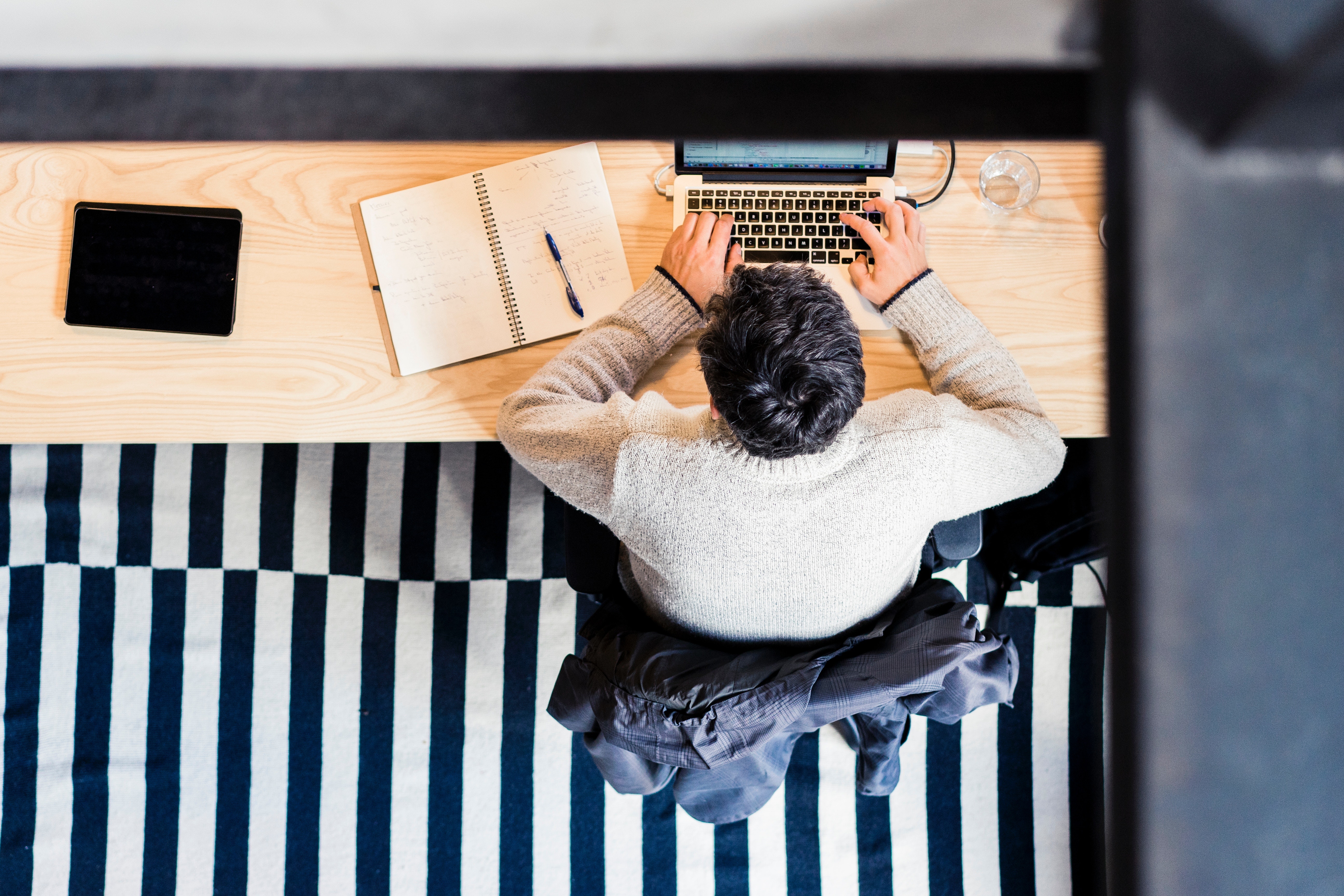
The ubiquity of internet access has made working on the road and during vacations much more practical than in previous eras. Unfortunately, it does expose you to security threats that wouldn't be an issue working at home or a corporate office. It's important to be mindful of the best practices to follow using public internet access points like airports, hotels, and cafes.
Physical security also requires attention to avoid losing valuable devices and data. The good news is that you can be as safe and secure in public as you can in a workplace when you take a set of common-sense precautions. In this article, we'll consider the top six ways you can keep your laptop safe as a digital nomad.
1. Keep Your Software Updated
It may seem that the endless stream of software updates pushed out by the operating systems, web browsers, and other software vendors isn't critical.
Some updates may only be bug fixes and feature tweaks, but many updates today are security fixes.
When security holes are discovered, software engineers are quick to release patches to prevent hackers from gaining access to your computer or data.
The battle between software companies and the hacker community is an attrition war fought with zero-day exploits and bug fixes.
Read also: 6 Tips to Stay Productive While Working Remote
As a result, one of the best ways to keep your laptop secure from hacking threats is to ensure that updates are installed automatically.
It's especially important if you work in public places where you're more exposed to hacking attacks.
2. Stay Computer Savvy to Troubleshoot Problems Yourself
Another important way to keep your laptop in top operating condition is to become a savvy computer user.
If you have a Windows laptop, you can dig into the inner workings of Windows 10 and learn all its strengths and weaknesses.
You'll save time troubleshooting the most common technical problems because you understand the likely causes and remedies.
The same holds true for any operating system. When you're working on the road and don't have access to technical support, it pays to become your own support technician.
3. Avoid Unsecured Networks and Devices
Public internet access service that's provided in places like airports and office lobbies can be convenient for checking email or texts on a smartphone.
Many of these locations lack reliable cellular signal reception, so they provide free Wi-Fi access for their customers. The security problems of unsecured Wi-Fi service can be serious, though.
If a Wi-Fi access point doesn't require you to login with a unique password, you should not use it for any important work or personal communications.
Unsecured internet connections can expose you to man-in-the-middle attacks that allow another user nearby to eavesdrop on your network traffic.
They can steal login credentials to websites you visit and intercept documents that you send or receive.
The wisest policy is to avoid unsecured internet connections and use personal hotspot instead.
4. Use Strong Passwords, Anti-Malware, and Encryption Tools
Savvy internet users know how to harden their computers against hackers.
When you use all the tools that are available, you can make your computer very difficult to hack or infect with malware.
The first step is to use strong passwords and never reuse the same password or passwords that are very similar to each other.
Make your password longer than eight characters and randomize them with numbers, letter, and symbols. Password crackers won't be able to break into your accounts easily if you do this.
Anti-malware software has improved a great deal in the past decade.
Choosing a reputable anti-malware vendor will protect you from the vast majority of "drive-by download" attacks that can happen when you visit websites.
Read also: Key Components to Running a Successful Remote Business
Another line of defense is to use strong encryption to protect your critical data from theft. Without the encryption key, encrypted data is useless to hackers if they do manage to steal it.
5. Never Leave Your Devices in a Car or Hotel Room
Physical security is also important to think about when you work while traveling.
Depending on the industry and your position in an organization, your work laptop can be a treasure trove of information to thieves.
Instead of hacking your computer over the internet, they can also physically steal it from you if you're careless.
Cars locks and the locks on hotel room doors are easily defeated if a thief doesn't care about physically damaging them.
Older car locks are easily defeated by wedging windows open, and car windows can be shattered for a quick theft.
Similarly, door locks are not difficult to defeat by knowledgeable thieves, and most can be forced open with a well-placed kick.
The lesson is not to consider any location safe to leave critical data unattended.
The best policy is to keep your laptop with you at all times if you think there's a risk of theft.
6. Choose a Coworking Space with Security Measures
Coworking office space is available for short-term lease in most major cities today.
One way to solve many of the security threats that you face on the road is to rent office space during your stay away from your home office.
Many coworking sites have on-site security personnel, secure internet access, and secured office computers available for their lessees.
These workspaces are much more secure for working on a laptop than public places not intended for business like airports and restaurants.
The security issues that arise when you work away from a secure location are many, but you can stay safe and keep your critical data secure by following the precautions that we've outlined.
If you proactively researching security threats and how to mitigate them, you can stay safe and secure wherever you choose to take your work.



Comments (0)
Subscribe via e-mail